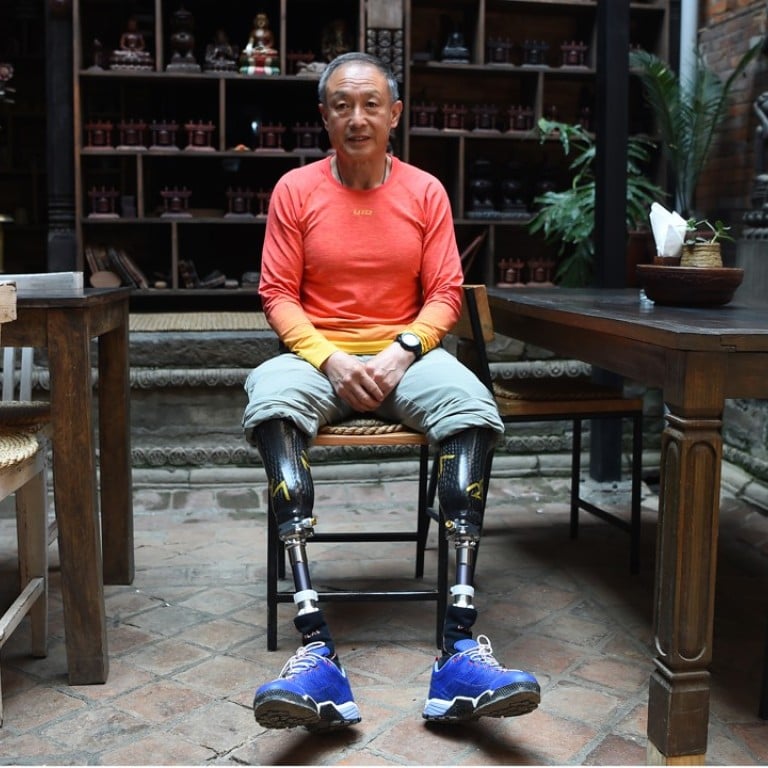
Chinese double amputee talks about finally climbing Everest, 43 years after first attempt
Xia Boyu had his feet amputated after suffering severe frostbite during an attempt on Everest in 1975. This year, having battled cancer, bad weather and the Nepalese government, the 69-year-old finally got to the top
Climbing the world’s highest mountain could not have been further from Xia Boyu’s mind as an athletic 25-year-old in 1974, when he played for the provincial soccer team in Qinghai, an underdeveloped region on the Tibetan Plateau in northwestern China.
But when the Chinese Mountaineering Association announced it was looking for climbers to join an upcoming expedition, Xia put in an application – though only for the opportunity to get a free health check-up.
What it’s like to hike round Mount Kailash, world’s most sacred mountain
To Xia’s surprise, he was among the handful of successful candidates from a field of several hundred applicants.
“I didn’t realise the significance of it. I thought I’d go back to playing football afterwards,” Xia, now 69, recalls.
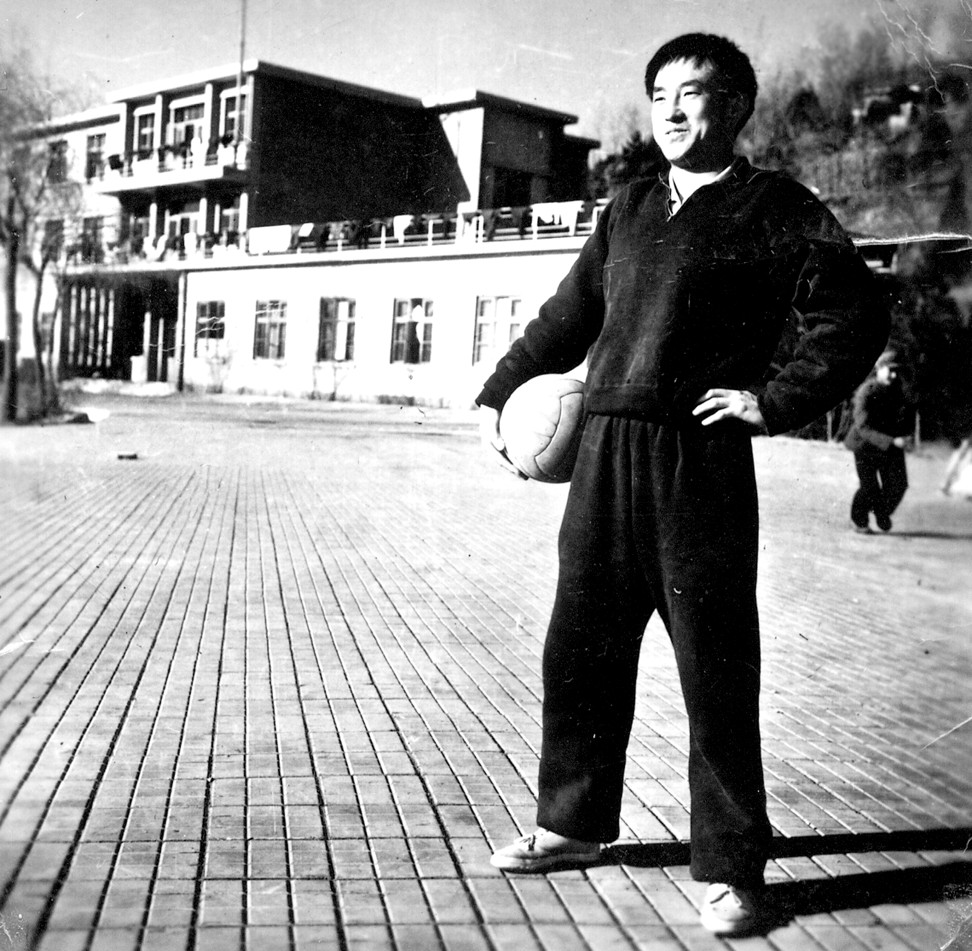
After just a few months of training, Xia and his fellow climbers embarked on an ascent of the 8,848-metre (29,029-foot) mountain in January 1975. The mission failed; worse, Xia suffered such severe frostbite that he later lost both feet.
The experience set Xia on a 43-year mission to reach the mountain’s summit, which the double amputee finally achieved this year, overcoming enormous odds in the process.
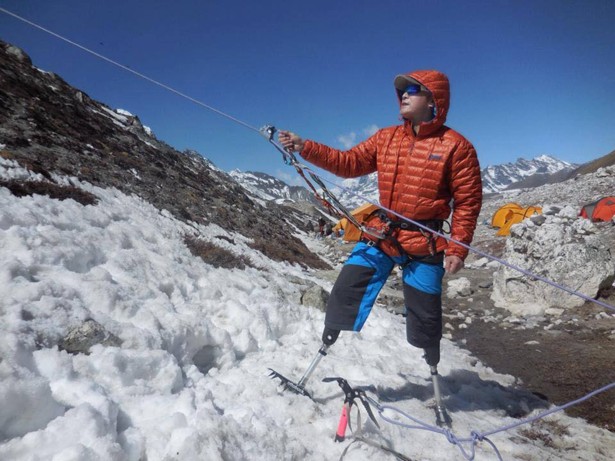
Xia spoke about previous failed attempts, personal sacrifices and eventual success on a recent trip to Hong Kong as ambassador for Swiss watchmaker Doxa, which sponsored his latest expedition.
Xia was in good spirits and looks much younger than his age, despite the purple and black frostbite scars on his cheeks and his fingers from his most recent expedition. “Frostbite wounds go from pink, then purple and finally black,” he explained as he showed the darkened tips of his fingers.
He recalled how, on the his first expedition, he had been nicknamed the “Fire God” because he had no fear of the cold and one night lent his sleeping bag to a teammate who had somehow lost his own.
When he awoke in his tent the following morning, he had lost all sensation in his feet and had to be carried back down the mountain. A storm blew in soon after, forcing the other climbers to retreat. They returned a couple of weeks later and reached the peak – without Xia.
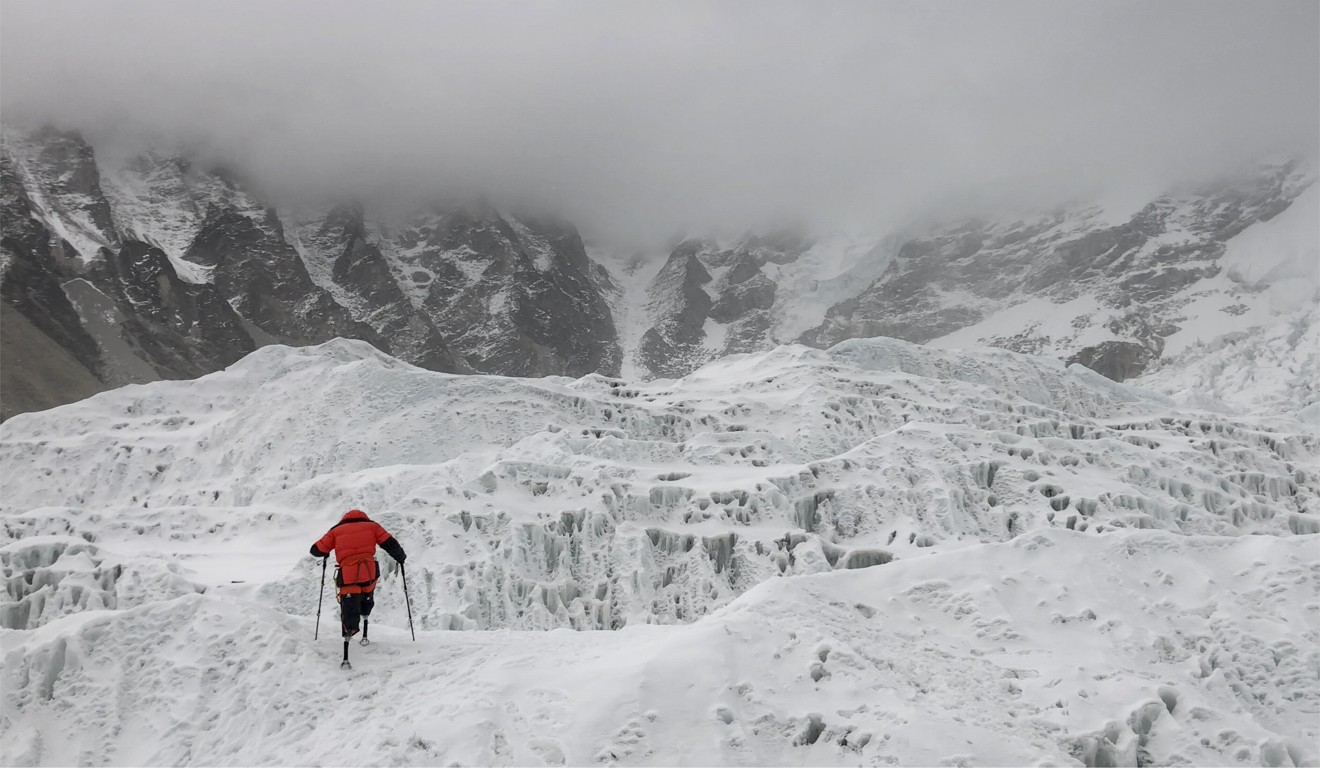
Back in China, Xia spent two months in the care of doctors who tried in vain to save his frostbitten feet, which they later determined would need to be amputated. It was a devastating blow to the soccer fanatic.
“I lost all hope. I thought I would spend the rest of my life in a wheelchair,” he recalled.
Three years later, China’s General Administration of Sport sought help from a foreign expert to assess Xia’s condition. The consultant concluded that with prosthetics, Xia would be able to walk again – and even climb mountains.
“Everyone else had been pitying me, so I was exhilarated to hear this. It made me determined to challenge life and Mount Everest again,” he said.
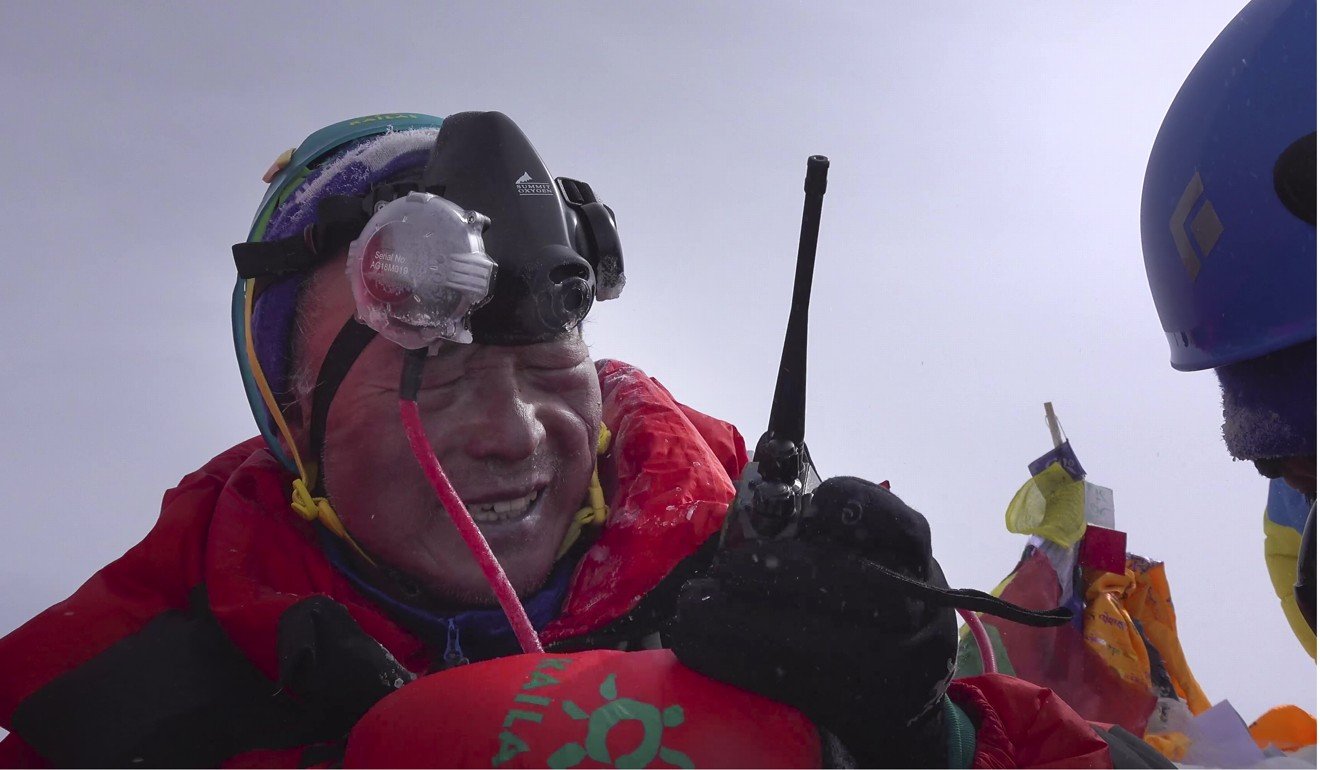
With his prosthetics, Xia took part in various Paralympic events during the following years in sports including basketball and table tennis. He set himself a gruelling exercise regimen, often waking at 5am to train for five or six hours. This would often include 90-minute cardio exercises while wearing weight packs of up to 10kg. Occasionally he would cycle the 20km from his home in Beijing to the Fragrant Hills on the city’s outskirts to practise climbing. The intense training often left the stumps at the base of his legs bloodied and bruised
[In 2016], if it had only been me, I would have done everything [to get to the top], including dying there. However I couldn’t risk the lives of others just to achieve my own goal
In 1996 he suffered a major setback when he was diagnosed with lymphoma, a cancer of the lymphatic system. He had to undergo another round of amputation, losing his lower limbs below the knees.
It was not until 2014 that he organised his own team for another attempt to scale Everest – despite the fact he was 65 years old. It had been nearly 40 years since his first attempt. He had been biding his time, he says, until suitable prosthetics became available and he could secure sponsorship to cover the expedition cost of about HK$500,000 (US$64,000).
Zhangjiajie national park: the best of its stunning mountain sights
Sadly, it was not to be. His team arrived at Everest Base Camp only to be informed that all expeditions had been halted after an avalanche at the mountain’s Khumbu Icefall killed 16 Sherpas.
A plan to try again the following year was similarly thwarted when a 7.8-magnitude earthquake struck the Himalayan nation of Nepal and the climbing season was abruptly cancelled.
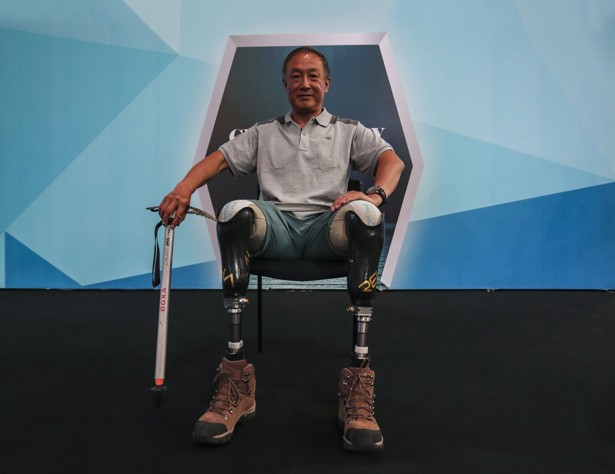
Xia’s tenacity did not go unnoticed and he began to appear on television shows sharing the story of his Everest goal and raising awareness for the disabled community.
When Xia appeared in a 2015 episode of Impossible Challenge on Chinese state broadcaster CCTV, host Benny Sa compared Xia to the fictional fisherman Santiago in Ernest Hemingway’s The Old Man and the Sea, who fought to catch a giant marlin despite exhaustion and injuries. “What we have seen today is a real-life Old Man and the Mountain,” Sa said.
In 2016, Xia’s team made another attempt to reach the peak. They made it to within 100 metres of the summit when a snowstorm blew in and visibility dropped to one metre, forcing them back down the mountain.
“If it had only been me, I would have done everything [to get to the top], including dying there,” Xia said, recalling the difficult decision to turn back. “However I couldn’t risk the lives of others just to achieve my own goal.”
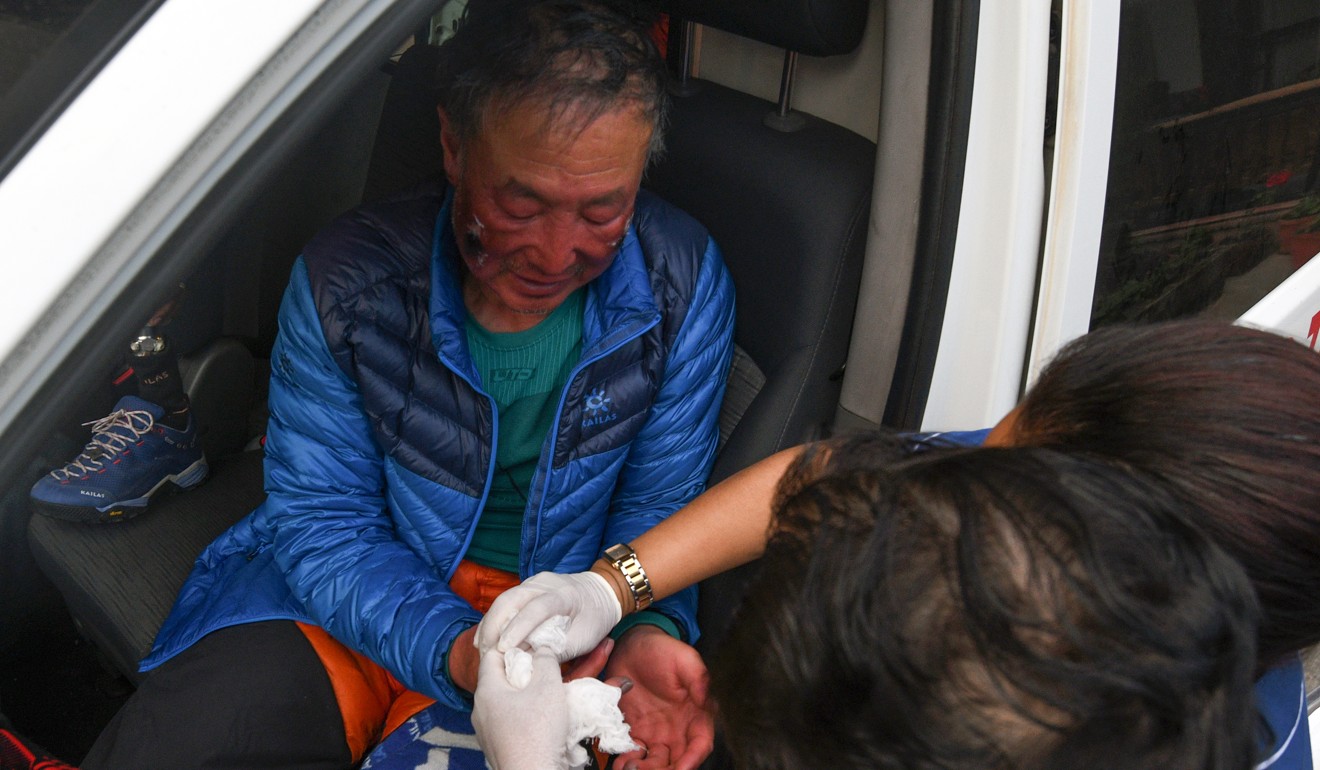
In December 2017, with an undeterred Xia planning another mission, the Nepalese government announced a ban on solo, blind and double-amputee climbers on Everest. Xia was dismayed, but the ban did not last long; the Nepalese court revoked it after an outcry from disabled support groups.
That allowed Xia, at the age of 69, to finally climb to the top in May this year. He was joined by a fellow Chinese climber and two Sherpa guides, the leader of which was an eight-time Everest conqueror called Dawa Gyalje.
Once more, Xia was facing sub-zero temperatures, low oxygen levels, and a high possibility of blizzards and avalanches – all while negotiating the climb on two prosthetic legs.
The prosthetics compound the difficulty of mountaineering not just in terms of mobility – they lack the grip and flexibility of human feet, so Xia has to exert more energy – but also because Xia cannot feel the ground beneath him, forcing him to assess its stability by sight alone.
My whole life I’ve lived for my dream, and have not cared for my family as I should. I will make it up to my family. I’d like to take my wife on a road trip
Twice while crossing icy crevices, one of his prosthetic legs slipped into a craggy slit and became stuck. Terrified, he did not dare move. If the prosthetics came loose and fell off, it would spell the end of the mission once again because of how difficult is was to attach them to his swollen stumps. Fortunately, Gyalje helped him on both occasions by slowly and carefully extricating the prosthetic limb.
On May 14, Xia and his team reached the top of the world. The feeling, however, was not how he had imagined it would be.
“I had thought when I finally reached the summit, I would shout it to the world. I would do all these poses for photos. But when the moment arrived, I just felt calm,” Xia said. He added that they spent less than 20 minutes on the peak because a snowstorm was forecast to be on the way.
On Weibo, China’s version of Twitter, Xia acknowledged that he could not have accomplished his mission without the help of Gyalje. Xia invited his Sherpa guide to China in August and treated him to a dinner of Peking duck.
Five things to do in Nepal – other than trekking
Through his 43-year mission, Xia has been supported by his wife Ma Yi and son Xia Dengping (the characters of Dengping’s name mean “to climb” and “safety”, which his parents hope he will be blessed with in life). Before Xia left for Nepal in May, Ma gave him a silver gourd necklace with the Chinese characters for “safe return” engraved on it.
His son explained that Xia often felt conflicted after a failed attempt to summit the mountain. “My father felt guilty because every time he came back from Mount Everest, he’d say he wouldn’t go again, just to reassure us. But this was his only goal in life. If we didn’t get behind this, there wasn’t anything else to support,” he said.
But now that Xia has achieved his lifelong goal, he has another important mission.
“My whole life I’ve lived for my dream, and have not cared for my family as I should,” he said. “I will make it up to my family. I’d like to take my wife on a road trip.”
Additional reporting by Staff Reporter

